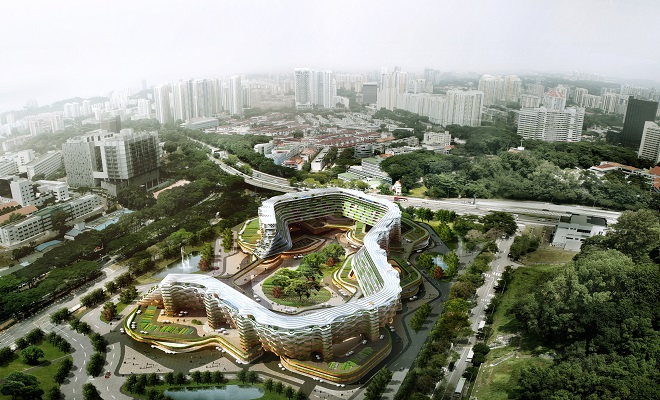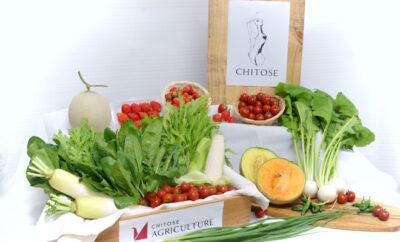
Insights + interviews
Urban Vertical Farming For Active Agers
The bold conceptual project proposes the combination of apartments and facilities for seniors with urban vertical farming.
SPARK’s aim is to generate discussion about the viability of such a project, as it can potentially solve the ageing conundrum that numerous nations in Asia face, as many of them are still exploring various avenues in supporting and accommodating a rapidly ageing population as well as a low fertility rate.
In fact, a substantial demographic shift is underway. By 2030, one in five Singapore residents will be aged 65-years and over (up from six per cent in 1990). The swelling proportion of seniors will place significant demands on social, economic, healthcare and infrastructural systems.
Another pressing issue is the securing of a steady food supply for growing city populations in rapidly urbanising nations in Asia. This challenge is keenly felt in Singapore, a small and fully urbanised city state without a hinterland. Currently, Singapore imports over 90 per cent of its food, and has in place strategies for the diversification of food sources and the boosting of local production through intensive agricultural technology. As such, what the Homefarm concept can offer is the opportunity for active agers to reside in a high-density and flexible housing environment that introduces urban vertical farming (aquaponics) and rooftop soil planting.
Residents can also combat the financial stress that is often faced post – retirement by working part time at the farm under the direction of a professional urban vertical farming implementation team. Facilities catered to the needs of an older population are provided in the lower levels of the development (and are also open to the public), while the housing is stacked above in a curvilinear terraced formation reminiscent of land contours.
The gardening activity would offer numerous benefits beyond personal income generation, including community connectivity and the promotion of health. Simultaneously, beyond boosting the resiliency of Singapore’s food supply, the production of food in the heart of the city could provide a platform for community education, help lower Singapore’s high carbon footprint by closing the gap between producers and consumers, and contribute to the perpetuation of Singapore’s ‘City in a Garden’ vision in a productive capacity.









